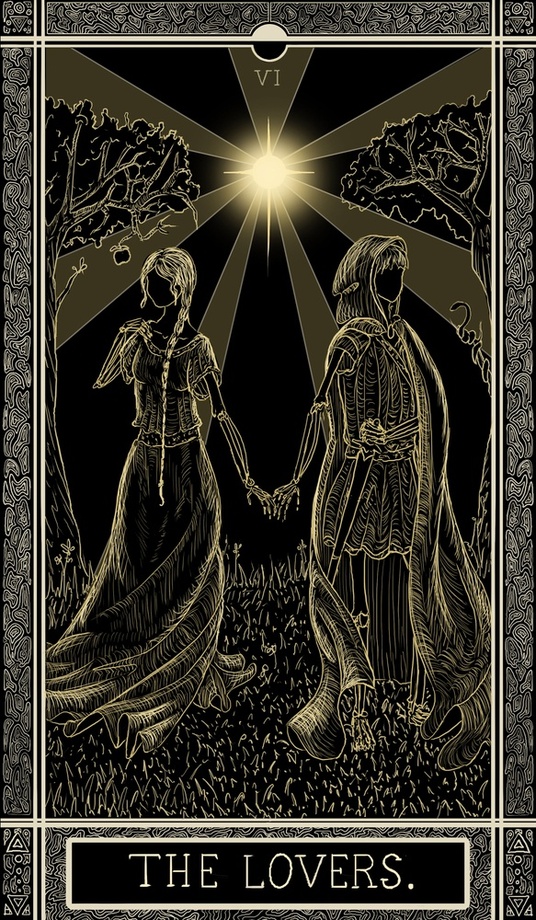
The Seven of Cups card is one of temptation and the need for a decision. This card is also a symbol of caution and the need to consider all options. You might feel the grass is greener when you look at the Seven of Cups. This can leave one feeling indecisive and unsure.
Tarot Seven of Cups
The Seven of Cups is a sign that you are open to meeting new people. This card shows your confidence and belief in your future plans. This card is a sign that you are ready to take calculated risks and pursue your dreams.

Significance
The Seven of Cups could represent many emotions. It can also signify indecision or uncertainty, or it may indicate too many options or a lack thereof. This can also mean that you aren't sure what to do with a person. It can also be a sign of fantasies or a crush.
Interpretation
The Seven of Cups in love tarot readings can suggest indecision. This person is not certain what they want, and should consider their options. This card could also indicate a broken relationship. The other person feels the grass is greener.
Indecisiveness
The Seven of Cups is an important card in the Tarot, but it can also indicate indecision. This card often indicates that a person is feeling tempted to make a decision that might lead to a bad outcome. It is possible that they feel the grass is always greener on the other end, or they might be feeling undecisive about a partnership. You may need to have an honest talk with your partner if that is the case.

Relationships
The Seven of Cups may be used to represent second thoughts in a relationship. It can indicate that the person is not motivated to change their current situation. This can indicate that it is time to have a difficult conversation about your current situation with them.
FAQ
What are some great hobbies for seniors?
Senior citizens need to find things they like doing. Senior citizens should keep active through participation in physical and sports activities.
They may wish to join clubs, where they can find others who have similar interests. This way, they'll feel less lonely as they age.
Seniors must also be on the cutting edge of new trends. They could be interested in fashion, art, music and literature.
Why do we need hobbies
Hobbies play an integral part in our lives. It allows us to unwind and recharge, think creatively, exercise, socialize, have fun, and allow us to enjoy life. Hobbies offer opportunities to develop new skills as well as life-long interests.
Hobbies allow us to find meaning in our lives.
They are great for spending your free time when there's not much else.
And they're fun!
If you don't find time for hobbies, it's likely that you don't have enough time for any other activities.
Take a look at the many options that are available to you. Start a hobby today, if you don’t have one already!
What are educational hobbies, you ask?
An educational hobby is a activity that allows you to learn by doing it. It could be anything, from playing sports to learning how an instrument is played.
It should be enjoyable and fun for you. You don’t have to do it constantly, but you should consider what other activities you could be engaging in instead.
You should also make sure that you are not spending too much money on these activities. It could end up costing your more than it's worth.
How much does a hobby cost you?
It costs nothing to start a hobby. If you're serious about your hobby, it can take you years to get what you want.
But there is one thing you can do to help yourself. It's called passion'. Passion will help you put in the effort to succeed.
And once you start putting in those hours, you may find that you become addicted to the activity. And this is where the real fun begins! Because you're doing something you like and it keeps getting better. This will mean that you will have likely made significant improvements by the end.
Don't be too concerned about how long it takes. Just go ahead and try. You might be surprised by what you find!
Statistics
- The intensity of the dialogue partners' bond at the end of the forty-five-minute vulnerability interaction was rated as closer than the closest relationship in the lives of 30 percent of similar students. (time.com)
- This 100% accurate personality-analyzing hobby quiz discovers your passion based on your characteristics. (quizexpo.com)
- A new survey by Pew Research Center of teens ages 13 to 17 finds that 36% of girls feel tense or nervous about their day every day; 23% of boys say the same. (pewresearch.org)
- Much of this decline reflects the fact that teens are less likely to work today than in the past; among employed teens, the amount of time spent working is not much different now than it was around 2005. (pewresearch.org)
- Almost 80% of people claim to have no hobby. (hobbylark.com)
External Links
How To
How to learn a musical instrument
There are many different ways to learn how music is played. You could attend a school, read a book, get lessons from someone who plays a musical instrument, or look at videos online. However, if you decide to find your own way to learn, here are some tips and tricks that might help you out.
-
Find something that interests your interest. If you don’t like any of these instruments, you can always try another. If you don’t enjoy playing an instrument it will be hard for you to get into it.
-
Be patient. Learning anything new takes time. You don't have to learn everything in one go. Instead, continue to practice each day.
-
You should practice often. You can do this even when it is hard. This will ensure you don't forget what lessons you have just learned.
-
Find a quiet place to practice. The ideal place to practice is one that is quiet and won't be disturbed by anyone else. Make sure there aren't distractions. Avoid loud music, for example.
-
Have fun. Music should be enjoyed. So make sure that you always have fun while practicing. You'll be more motivated to practice if you enjoy yourself.
-
Set goals. When you set goals, you know exactly what you have to achieve. There is no excuse for failure.
-
Keep track of how you are doing. Write down all of your accomplishments and failures. Doing so will help you improve over time.
-
Take breaks. Sometimes you just need to take a break. It is a good idea to take breaks so you can think about everything.
-
Ask questions. Ask other people if you have any doubts or confusion regarding certain aspects of the instrument. They may be in a position to assist.
-
Listening is the best way to learn. Musicians often listen to music they like and try to imitate it. This helps musicians understand the fundamental concepts of the song.
-
Read books. Read books to learn more than just watching videos or learning from classes. Books often contain information you can't find elsewhere.
-
Get involved in a band. You'll be more motivated to practice when you are playing with others. Plus, it will be easier to meet people with similar interests.
-
Learn from tutorials. Tutorials are short videos that give detailed information on a topic. These videos often focus on one aspect or part of the instrument. You can learn difficult parts of the instrument by watching tutorials.
-
Explore different learning methods. Some people prefer to learn through lectures, whereas others learn better by reading. Find what works best for your learning style.
-
Practice makes perfect. Nobody becomes an expert overnight. Instead, it takes time and effort to become proficient enough for you to succeed.
-
Play along with other musicians. Listening to other people play their favorite songs can help you learn faster.